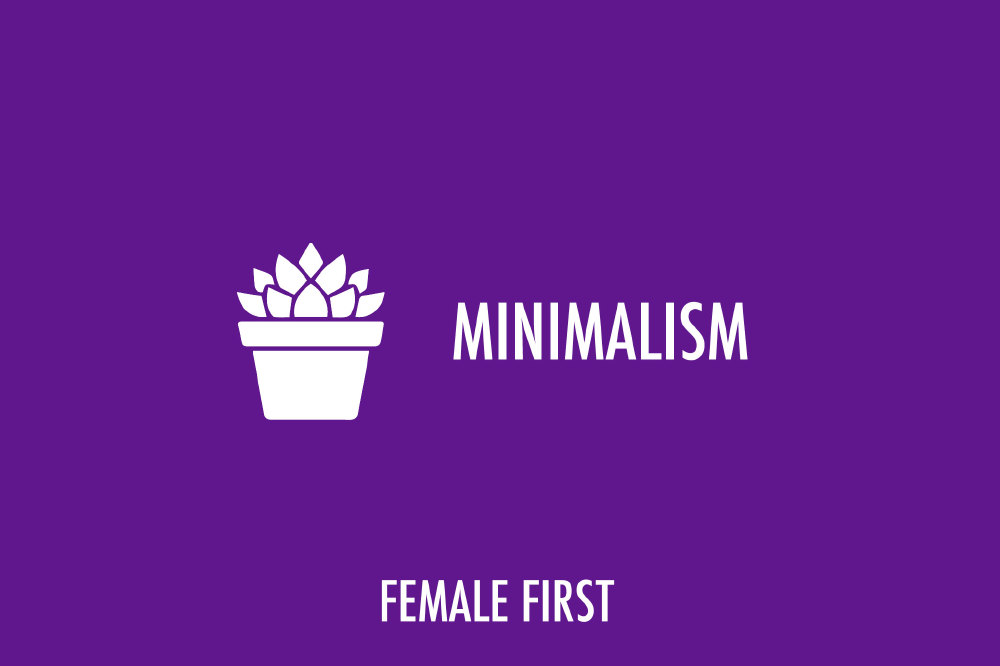While it may have been engrained into you via Pinterest that minimalism equals white walls, soft woods and only ten things in your wardrobe, minimalism is a deep-rooted lifestyle that stretches far beyond aesthetic values. As a working mother of a busy family, minimalism isn't always attributed to someone whose life involves small children, yet I've found it far more beneficial to remove the clutter from our lives and concentrate on the objects and belongings that make us happy. Here's ten reasons why you should adopt a minimalist lifestyle too:

Natalia Geci's home
To be lighter in body and spirit
Imagine how you feel after spring cleaning your home. Everything is lighter and you feel happier. Now imagine that feeling all of the time, never having to worry about clutter or the build-up of unwanted possessions. Physical clutter results in extra stress on our lives and removing it allows you to unwind and feel free within your home and when out and about.
To avoid being a slave to your possessions
Many people are obsessed with their belongings and would feel lost as a person without them. Your possessions don't define who you are and you shouldn't ever feel as if they do. Minimalism helps you to learn more about yourself as a person and value your own unique qualities, beyond the objects and possessions that you surround yourself with.
To value what you have
Minimalism isn't about getting rid of everything within your life, it's about keeping hold of the things that truly keep you happy. With my own furniture designs, I aim to keep these items at the forefront of people's lives, so they are constantly surrounded by the objects that reflect their happiness. If anything is too distracting upon the shelving, it can simply be removed and given away to friends or a charity shop.
To enjoy your possessions more
As Marie Kondo's book suggests, you should only keep objects that bring you joy. By keeping your possessions around you, you’re more likely to use them and remember why you’ve kept them.
To save money
Debt can weigh heavily on your shoulders and getting a handle on it by buying less is one of the easiest ways to save money and reduce outgoings. This in turn allows you to think about future purposes more and ensure everything you buy is considered and will make you happy.
To be more sustainable
Minimalism reduces your impact on the environment by requiring less resources on the front end for production and reducing the amount of waste on the back end. Thinking carefully about your purchases results in far less waste and quality over quantity tends to go hand in hand with sustainable and long-lasting materials.
To not overcharge the planet with ‘stuff’
It might be an obvious point but minimalism literally reduces the amount of ‘stuff’ in your life. If everyone adopted minimalism as a lifestyle, the environment would likely be a lot happier. I aim to design products that are long-lasting and go from home to home for this very reason – investing in long-lasting furniture is key to a happy and fulfilled home.
To allow space for change and encourage new experiences
Getting rid of clutter allows for a clearer head and therefore plenty of room for an open mind and any new experiences that might come your way. Accepting that there are things in your life that you don’t need allows you to be vulnerable and more accepting to change for the better.
To make maintaining your home easier
If you enjoy clean, tidy rooms but don’t particularly like to get dirty, minimalism is probably one of the easiest ways to reduce time cleaning. By owning less things and making clutter-free spaces, you reduce the amount of dust as well as areas to get messy!
To save time
Less time cleaning also means more time for other things. Consider for just a moment the amount of time that our belongings drain from our life. Whether we are organising, maintaining, repairing, removing or shopping, our possessions demand a large percentage of our time. Owning fewer possessions results in more time spent on the important things in life.
Written by Natalia Geci
Tagged in Minimalism

